#duke of calabria
Photo
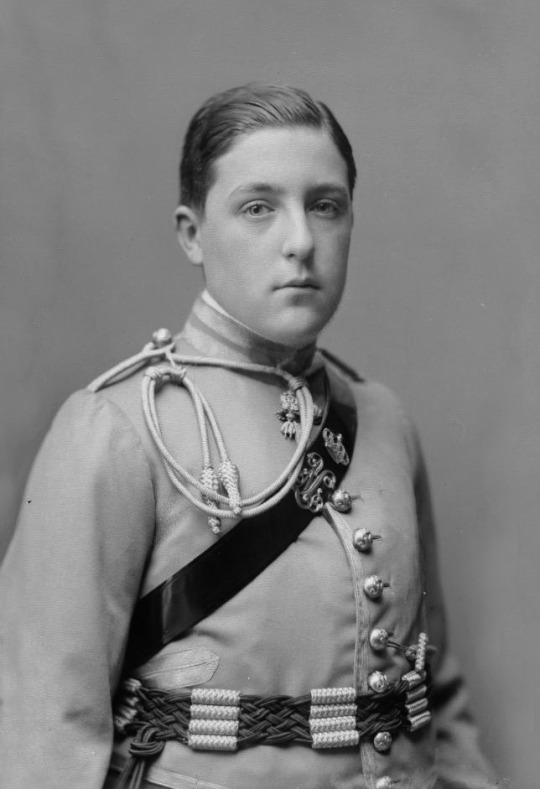
Infante Alfonso of Spain, Prince of the Two Sicilies, Duke of Calabria and Count of Caserta portrayed wearing the uniform of the Regiment of the Hussars of the Princess, c. 1915.
Infante Alfonso of Spain, Prince of the Two Sicilies, Duke of Calabria (1901–1964) was one of two claimants to the title of the head of the House of Bourbon-Two Sicilies from 1960 until his death in 1964. Alfonso was the son of Prince Carlos of Bourbon-Two Sicilies and his wife, María de las Mercedes, Princess of Asturias (1880–1904)
#borbone#casa di borbone#borbone di napoli#borbone delle due sicilie#regno di napoli#regno delle due sicilie#infantes de españa#duke of calabria#count of caserta#infante de españa#prince alfonso#house of bourbon two sicilies
4 notes
·
View notes
Text

Ferdinand of Aragon, Duke of Calabria and Viceroy of Valencia (1488-1550). Unknown artist.
#monarquía española#casa de trastámara#regno di napoli#italian aristocracy#duke of calabria#ducato di calabria#valencia#viceroy of valencia#full length portrait#beaded men
0 notes
Text




David breaking the fourth wall while playing Ferdinand in The Duchess of Malfi - Shakespeare's Globe, 2014
#I JUST REMEMBERED I HAVE MORE GIFS FOR THIS#very low quality i know BUT LOOK AT HIM#the duchess of malfi#the duchess of malfi 2014#ferdinand duke of calabria#david dawson#michela's gifs
32 notes
·
View notes
Text

Infante Alfonso Maria Leo Christinus Alfonso of Spain, Prince of the Two Sicilies, Duke of Calabria
Spanish vintage postcard
#historic#spanish#photography#vintage#maria#sepia#photo#briefkaart#sicilies#prince#christinus#ansichtskarte#postcard#alfonso#calabria#postkarte#postkaart#infante#carte postale#ephemera#postal#spain#duke#tarjeta#alfonso maria leo christinus alfonso
1 note
·
View note
Text
Prince Carlo, Duke of Castro

Physique: Average Build
Height: 6'
Prince Carlo of Bourbon-Two Sicilies, Duke of Castro (Born 24 February 1963) is one of the two claimants to the headship of the former House of Bourbon-Two Sicilies. Born at Saint-Raphaël, Var, France, as the only son of Prince Ferdinand, Duke of Castro, and his wife, Chantal de Chevron-Villette. Carlo succeeded to his father's claim as head of the House of the Two Sicilies in 2008 and the use of the title Duke of Castro. This claim is disputed by the Spanish branch of the House of the Two Sicilies.





A damn good looking man who looks like he would be a great fucker in bed. Every time I saw his pics… instant hard on. But I kept forgetting to look up his name until now.





Well, Prince Carlo is married to Camilla Crociani, together they have two children: Princess Maria Carolina, Duchess of Calabria, Duchess of Palermo and Princess Maria Chiara, Duchess of Noto, Duchess of Capri. Why wouldn’t a good looking man like him not be tied down to someone. And it looks like I’ll never get a shot at him alone as his wife is always on his arm.



Seriously, about 95% of the pics I found of him, she’s on his arm. But I don’t blame her though. I’d have him near me constantly too. I’ll just have to settle for a 3-way with the Prince & Princess of Bourbon-Two Sicilies. What? He’s French, so clearly its an option.

48 notes
·
View notes
Note
How... hm, how to put this... how aware were rulers of regarding other nations in the medieval and early modern periods? Like, would the ruler of Portugal know who the Timurids were? Or what was going on in Muscovy at the time? Like, how far east and south did their knowledge go before it turned into "Here Be Dragons" legend and rumor? Did they know who the Mali and Songhai were?
The answer is that it depends, largely due to differing geographies and trade patterns and time periods. For example, the ruler of Portugal might well know who the Timurids were - if it was after Vasco de Gama's "discovery" of the Cape Route to the Indian Ocean, because it's just a quick jaunt up the Indian coast to get to the Persian Gulf.

I doubt the King of Portugal would have much to do with the Tsar of Russia, but Queen Mary and Queen Elizabeth I of England definitely did - because the English government had chartered the Muscovy Company in 1555, which ferried diplomatic exchanges between Ivan IV and Elizabeth I along with the huge cargo of wool for fur and fur for wool.

And certainly the monarchs of western and central Europe would have been familiar with the kingdoms of eastern Europe, because they were all fucking inbred relations of each other.
For example, Louis the Great was King of Hungary, Croatia, and Poland, but he was also of the House of Anjou and his brother was the Duke of Calabria who married to the Queen of Naples, who also was the Countess of Provence and the Princess of Achaea. - and after his brother was assassinated, Louis invaded Naples and claimed the title of King of Naples, Sicily, and Jerusalem!

Similarly, Henry III of France was elected King of Poland and Grand Duke of Lithuania in order to keep out the Hapsburgs, and Henry's mother was Catherine de Medici. So there was probably a lot of knowledge of different countries just from family letters...

As for Mali and Songhai, the Portuguese and the Dutch "traded" extensively with West Africa in the 15th-17th centuries. So they certainly would have traded with the Mali and then the Songhai Empires. But I doubt the Tsar of Russia would have known much about them, and so it goes...

113 notes
·
View notes
Text

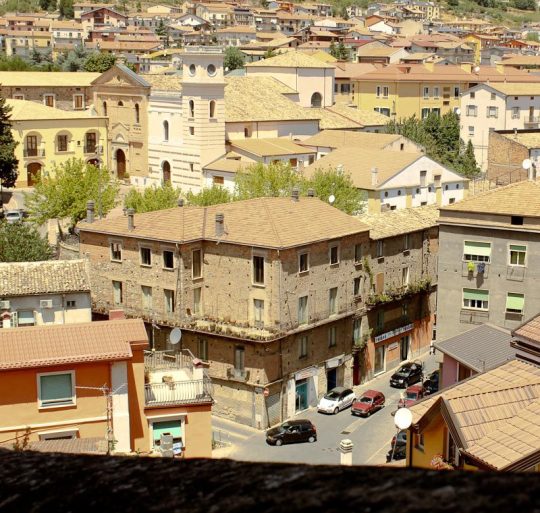


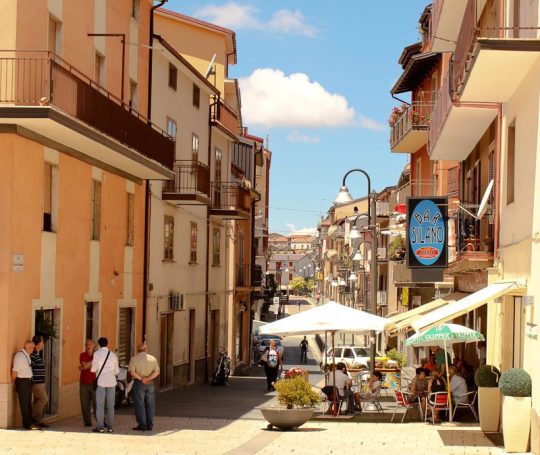
Acri, Calabria, Italy
Acri in Calabria is sometimes described as the "door to the Sila mountains", yet the town appears impenetrable which could be due to a long history of violence.
In the Middle Ages, during the reign of the Norman King Federico II, Acri enjoyed a period of relative peace and economic prosperity, and it became an important centre for the silk trade.
In the 15th century, the power struggle between the French House of Anjou and the Spanish Crown of Aragon nearly destroyed the town. In 1462, a local duke obtained permission from the Aragonese King Ferdinand I of Naples to collect taxes in Acri. When people protested and proclaimed loyalty to the former Angevin rulers, they were seized by troops from the Aragonese army.

Even at that time, Acri must have seemed impenetrable to outsiders, for the Spanish soldiers failed to take the city, until they found a traitor who revealed the secret signals that opened the city gates. The soldiers attacked Acri with incredible cruelty, and it is estimated that 2000 citizens lost their lives. Women and children who had taken refuge in the church of Santa Maria Maggiore were burned to death, and the leader of the guards was publicly sawed in four pieces while still alive, and the limbs were exposed from the four towers of the castle.
Such history of violence is in stark contrast to the quiet peace you can experience today in Acri. But the ruins of the old castle with its one remaining tower still hover over the city as a reminder of times gone by.

Photos by Italian Notes
Follow us on Instagram, @calabria_mediterranea
#acri#calabria#italy#italia#south italy#southern italy#mediterranean#italian#city#town#cityscape#history
45 notes
·
View notes
Text








Women’s History Meme || Scandals (big or small) (4/5)
↬ The abduction of Marie of Calabria
This task became increasingly difficult, particularly after the rivalry between the Tarantini and Durazzeschi was exacerbated by the clandestine (and possibly forced) 1343 marriage of Mary of Naples (then only thirteen) to Charles of Durazzo (1323–48). Mary stood second in line to the throne; the marriage, which made Charles the husband of Naples’ possible future queen, violated the terms of Mary’s betrothal to Louis of Hungary but had tacit papal approval.
Naples became a hotbed of intrigue that threatened to erupt into open feuding. Clement VI was obliged to maintain constant contact with the Neapolitan branches of the Angevin family, with Johanna and her advisors, and with the increasingly irate Hungarians as he struggled to sustain the fragile peace within this most dysfunctional of families.
— From She-Wolf to Martyr: The Reign and Disputed Reputation of Johanna I of Naples by Elizabeth Casteen
But Agnes [of Périgord], having anticipated this response, was ready for it. Two days later, on March 28, the house of Durazzo launched the second, covert half of its plan. One of Maria’s ladies- in- waiting, a young woman by the name of Margherita di Ceccano, herself the niece of a cardinal, was an accomplice to the plot. With Margherita’s help, Charles of Durazzo quietly lured his young fiancée into the west garden of the Castel Nuovo, which abutted the grounds of his family’s estate. According to Domenico da Gravina, from there he “abducted” her to his castle, where a sympathetic priest was waiting. This priest, by the power invested in him in accordance with one of the secret bulls signed by the pope, then hurriedly and secretly married the couple.
But the performance of so unorthodox a nuptial sacrament was not enough to assure Charles of his bride. So just to make certain that there was no going back, as soon as the priest was finished, the duke of Durazzo took the precaution of consummating the marriage. Or, as Domenico da Gravina, relaying information that was obviously common knowledge at the time, reported, “having intercourse, it is said, and keeping her in his own palace.”
Even an environment as sexually permissive as court life in Naples apparently had its limits. Charles’ and Maria’s behavior scandalized the kingdom. Worse, it goaded the house of Taranto to drop its diplomatic effort in favor of a strategy centered on armed conflict.
— The Lady Queen: The Notorious Reign of Joanna I, Queen of Naples, Jerusalem, and Sicily by Nancy Goldstone
#women's history meme#maria of calabria#capetian house of anjou#italian history#medieval#french history#european history#women's history#nanshe's graphics
14 notes
·
View notes
Text
If you fail to plan, you plan to fail.
No one wanted to play with me as a little kid, so I've been scheming like a criminal ever since - to make them love me and make it seem effortless.
I'm only cryptic and Machiavellian because I care...
Beatrix Sakamaki hcs
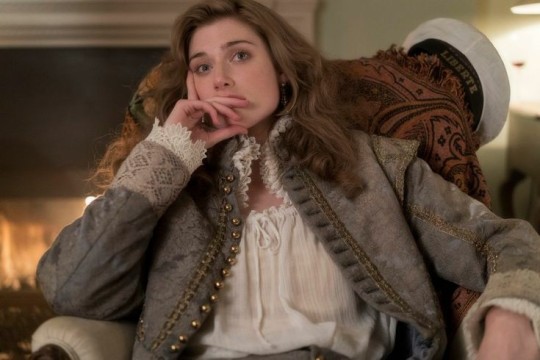
Beatrix is handsome.
She takes in nearly every way after her father with her striking gunmetal blue eyes, her strong jaw, and her height.
Those dreamers’ eyes were the softest shades of blue circling one another, like the hypnosis of cerulean.
They were framed by long caramel blonde lashes. She had deep-set eyes, one would think they were unfocused and lethargic if not for her rehearsed icy glares shades of brandished steel striking through the blue.
Not to mention their shared standoffish demeanour, however, her father is chased and admired as the steadfast and mysterious Duke of Calabria. She is the self-centred, ice princess who thinks she is better than others.
How strange is that?
Not to mention her monstrous fangs, it was the talk of society, an abnormality. Most vampiric women had lethal fangs but they were long, thin, and elegantly curled in.
Beatrix inherited her war hero father’s large fangs that would slice the flesh of her lips as a child if she wasn’t careful, they were thick and long, glistening with paralysing venom, one wrong move and she could rip one’s throat clean out. It was commanding and they were a clear symbol of an apex predator.
Some find it alluring as there are very few records of women having such ferocious teeth, some find it insulting, a ducal princess having such a feature is vulgar and unladylike.
Others are tempted to know how it feels, after all, vampires experience another’s bite under 2 conditions. When they’re locked in battle or a lover’s embrace. As a way of signifying belonging to another or dominance of the fiercer vampire, even among men such a fearsome trait was rare.
Her height was another factor that stood out; vampires were no dainty creatures, reaching up to 6’8 or 7' 0, but very few women, especially those of the aristocracy, were over 5 '11. Whereas Beatrix reached 6’3, dwarfing her brothers. Yet even as she stood out, heads turning to her approach, very little had seen hesitance in her footfalls.
Everything about her is purposeful.
The person you stare at in envy because she looks like a creation of Pygmalion comes alive. So utterly fantastic to look at with her fluid motions, and sharp angular features carved of marble creating a creature that invokes a sense of inferiority.

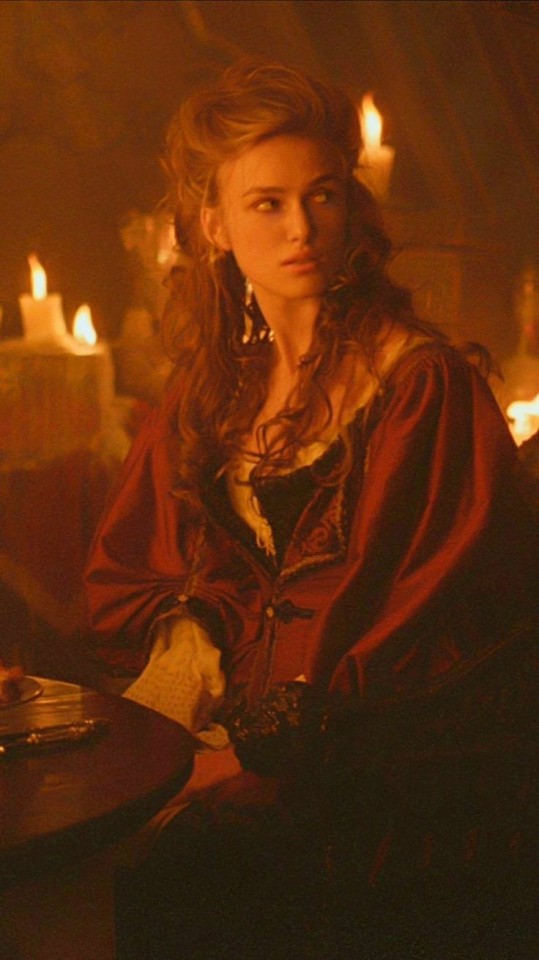

Do not be mistaken these circumstances do not mean she lacked the feminine allure, her mother Adelaide was infamous throughout high society for her beauty, to the extent many would whisper she had the blood of fæ. It was evident if the rumoured blood of fæ did exist, Beatrix had inherited it.
But she is sensible and self-deprecating, with a timid air around her, speaking when spoken to, centring herself as a wallflower.
With her mother’s flaxen blonde hair, with thick curls that glistened like Apollo’s. It was radiant, tousled naturally just so, curling around her pale face almost creating a halo-like barrier separating the veil of reality and the ethereal.
Her face was pale like milk, unblemished, with no unsightly blotchy flush, sheen like crushed pearls, a youthful inquisition imprinted upon such a face that it would not fade even as the years wore at her;. a philosophical beauty if one was ever made. The mathematicians would be driven mad by the perfect proportions of such a face.
The golden ratio as they said.
Aside from a triangle of moles on the side of her forehead. With dark arching brows and adorably feminine lips, no matter how hard she tried her poker face, they were set in a pout, a pale peach-pink that complimented her wintertime shades.
Her hands are thin and nimble from long hours of perfecting her letters for her household, they are pronounced at her knuckles, with rosy nails always kept small and tidy. The constellations of needle pricks along her arms were covered in the kingdom’s finest lace.
The face of regrets, she had this intense aura with her long straight nose that she would observe you from as well as her slender neck and collarbones like that of a swan, decorated by precious gems.
Women gripping their sanity when she speaks to them, looking down at them, her eyebrow arched and her lips pulled into this smirk, an amused yet indecipherable face, smarter, stronger, more chivalrous than their pathetic fiancés. Countless handkerchiefs dropped just to hold her attention, foolish excuses of tired legs as they occupy her table at banquets, brought along to dinner parties with picture-perfect poise as they take hidden glances at this dreamlike entity.
Her most appealing feature (to a man at least - to most her existence itself so paradoxical you could not look away) would be her legs, she had a dancer's poise. Her slender figure curved into wide-set hips, and strong legs with taut muscles.
To her it's all just a burden, her slim pear silhouette just means her corset has to be tighter to emphasise it.
All in all, she looked like the idealistic vampiric woman, with her inscrutable expression, practised politeness, and gentle voice with the sophistication that the affluent lorded over.
Her voice is quite a nasty thing, it’s quiet, throaty, and feminine. It’s commanding, a declaration of someone so obviously of the upper echelon, with her mixed accents of the knowledge of more languages - dead or alive- than one could even name.
It made you feel centred when she talked to you, concentrating only on you, her lips moving inpatient syllables, the attention was flustering, but it was flattering.
But when she smiled? Those rare unpractised uncertain smiles that came with the hesitance of one who wasn't used to joy? She was the most stunning woman in the eyes of the beholder.
She looked her best in her bruised colours. They complimented her golden blonde locks as they fell against bodices of the shades of twilight. Always neatly tied out of her face, even such untameable hair was placed with the purpose to enhance her face.
At her debutante, it was for the sake of her family flaunting their newest offer for the marriage market, or to showcase her dress from the seamstress sponsored by her family, or her earrings from her family's diamond mines.
A perfect political piece. One that raked in just the right amount of attraction without shoving herself out like a harlot, her audience’s shallow curiosity that could never uncover her swallowed secrets pushed down to the bottom of her stomach allowing her to put duty first, such a well-rehearsed puppet it was no wonder no one had ever cracked past her facade.



And I could recite about that beauty of hers for many more pages, but there lay such charm in her sardonic wit that I'd truly be doing her an injustice with just flattered vanity of her physical appearance.
When the water washes away the dark liner, power and rogue blush it reveals tired eyes tinged with lilacs from sleepless nights pouring attention over old, cracking books, possessed by a mind with far more ideas than her body could ever contain.
Her conversations with Mr Moon and the ceiling were never-ending, feet pacing back and forth, curls tugged in frustration, a pathetic figure curled in the warm water of the tub during the witching hour. Her matted hair is wet as she seeks warmth; a cigarette lit between her lips, already the third one. Evident by the other buds in the ashtray yet it is only a prelude to all the other substances she will smoke before attempting to bear with her stifling family at breakfast where her brother’s hateful stares and her father’s refusal to sit at the same table will erase her appetite so she fills herself with the dizzying smoke in preparation.
Rather than the princess in the glasshouses, she is the glasshouse.
Even though she is effortlessly beautiful, she is an absolute mess if left to her own accords.
Her hair was tossed together in a ridiculous excuse of an updo framing her face in the privacy of her attic regardless of whether it was wet or knotted, all alone slouched over the library chairs, hands turning pages of journals that should be falling apart.
Her tongue slips past her fangs, a teasing pink, as she concentrates—chapped lips and a dry throat, a hunger so desperate to fill the void.
So focused on the past not wanting to live in the present.
She spends her days cooped in the West Wing’s library long abandoned since Adelaide’s death, skipping the family dinner times and seeking refuge in a dusty salon sipping soup from her maids tin can, she blocks out the scornful looks - stealing the tiniest amounts of power hidden in her brother’s waistcoat, her sharp accent slurred into something softer and more compassionate - almost human on her fall from divinity.
Cautiously, weaving lies to hide the large secrets in her larger mansion.
Familiar with the dark attic where long hours are spent, the rusted phonogram has been playing the same tunes since she was a child. Long limbs glistened with sweat, stretching and bending. Twirling and twisting, the music slithering into her bones, guided by pure instinct and primal need to continue this solo piece for hours on end, surpassing perfection till her bloody feet, blue and black now dyed bloody red, had created her masterpiece on the floor.
At her core she was a dancer first, a slave to the muses, discarding all to glide in a castle of salt and sand made from soft notes to the tempestuous thundering of instruments. Only broken feet to prove it.
Yet she was sharper than she ever let on, books tucked under her arm snuck into her room, jam stains smeared on them as she carelessly turned pages, folded her pages as her attention is dragged away to another, ink-stained hands noting her discoveries cramming pages that had been filled when no other journals were found and she filled notebooks away with her thoughts only returning to write more about her mundane life, the lines squeezed with the pressure of recording her.
An attempt to immortalise herself, to prove her existence, to stop herself from becoming a nobody that nobody will remember.
They were stacked alongside the walls, making her protective fortress of loneliness, crates of chalk used up as she wrote up equations and erased them upon her walls, spewing the voices in her head across them.
Her inquisition continues. What was the point in starting something if she couldn’t see it through?
She was no lady, not here at least, they could herald her as their porcelain puppet out there but here. In the drab rooms, just past the insect-bitten velvet curtains, the light shone on a little dirty diamond. Unfortunately, her walls had ears.
Jars of stored specimens, dirt so deep under her nails from the dusks and dawns when her silent steps discovered what lay beyond her gilded castle, but her excuses were flimsy for all her intelligence the language of people came weak.
Her brothers raided her rooms of adventure, smashing bottles, tearing and burning pages of long nights, the tiniest mistakes led to unimaginable consequences.
Accusations hurled, the scorn and misplaced anger toppled its boiling cauldron.
God forbid anyone heard her pleas, her father who had long forsaken her too burdened with the sight of his wife’s killer. Her phonogram was in so many pieces, that even her skilled fingers rearranging the coils and metal pieces could not resurrect it.
So she escaped, for more and more days, the hours stretched until she escaped from her tower. Disguises and lies freely flowed and she perfected her art, but all her achievements outside her snowglobe led to harsher winters within.

Unfortunately, children who are starved accept all that is given, the warmth of the outside made her forget how filthy it was. It dragged her down, and the wrong people started seeking her, but it made her feel wanted so she followed the tune of the piper, it was a shelter of delusion and exploitation.
Till that too shattered and she transcended the basic wants and needs.
Perhaps that is where her loathing for the outside world came from, the poison far too deeply attached to her haemoglobin, flowing through her beating heart and corrupting all.
But every action has an opposite effect and consequence, and the cane, the choice of weapon her executioner had chosen, broke her apart further than she had ever been before.
As her facade came apart there was only one solution really, to send the doll shop back to the toy shop for parts to be switched out and replaced, once more winded to perfection till it fell apart again.
She arrived at her new home ‘ Grimhilde’s Academy for Noble Ladies’, on a drizzling January morning.
#diabolik lovers#diahell#beatrix sakamaki#beatrix#sakamaki beatrix#beatrix headcanons#dl headcanons#diabolik lovers headcanons#yui komori#anime#reiji sakamaki#ayato sakamaki#shu sakamaki#anime / manga#diabolik lovers headcanon#karlheinz#cordelia sakamaki#christa sakamaki#dl oc#diabolik lovers oc#Spotify
260 notes
·
View notes
Text

INTROITUS: THE FAREWELL OF A DAUGHTER, 1444.
Many years later, Isabelle would recall the only occasion she had seen her mother weep. It happened a forgotten day of the year 1444, and the memory of her tears would follow her to the grave that she untimely came to rest in.
That fateful night, she was eight years of age and her heart was heavy with anguish as she restlessly laid on her bed; her beloved sister, Marie, had been wed to Jean, the young Duke of Calabria, and parted with him to his domains, leaving a void where she had once been that Isabelle felt like a grievous wound. Even at that young age, the little girl knew what it meant: Her sister would never see Bourbonnais again.
The betrothal and wedding had been result of the Duchess of Bourbon’s cunning. Seven years had passed since she had offered the hand of her firstborn daughter to the heir of the Duchess of Calabria; seven years until both the bride and the bridegroom grew to an agreeable age to be wed. Isabelle had never thought that a wedding would occur; but it did. The bride was fifteen and, dressed in a heavy dress of golden cloth and a cloak ribbed with marten, she proved the fairest of all the daughters of Bourbon; the feast, the merriment, the dances… It had all all passed like a hazy dream, until Marie had came to kiss all her siblings goodbye.
When it came time for her to bid farewell, Isabelle had pulled her sister into an embrace; her eyes were full of tears.
“Promise me that you won’t forget us.”
A sad smile curved the lips of the now Duchess of Calabria: “I promise” she had said, pinning in her hair one of the flowers of the wedding, as red as the blood of a dragon, “And hereby I make the oath that, if it is in me, my first daughter shall have your name.”
And, just as she had been by her side for years, she left.
That night, Isabelle couldn’t sleep. Dream refused to free her from the sorrows of the vigil and, after what seemed like centuries, she decided not to wait, She had slipped off the bed, light like a young bird, wrapped in her nightshirt, tiptoeing out of her bedchamber, careful not to awake her maid.
The little Isabelle found his mother in a chamber, far from her own. She wandered through the solitary halls of the castle, looking for her mother. Duchess Agnès was, together with the guards, the first in rising from bed, and the last to return to the bedchamber for the night; in light nights like those, one could see her dwelling in a empty chamber, reading her precious book of prayers, making arrangements and reading letters, or silently embroidering near the fire; she was the image of virtue and dedication, of what a duchess had to be.
She still wore the beautiful gray gown ribbed in ermine fur and embroidered in silver thread that she had worn during the ceremony, but her necklace was resting over the table, and she had made her old maid disassemble the complicated veiled headdress that she used to wear, her long, flowing auburn mane falling gloomily on her back. At her feet, a little black-wooled lap dog slept soundly. Her white hands, those hands that Marie had too, with thin and agile fingers, were eagerly embroidering a delicate piece of tapestry.
"What death doesn't take away from me, a man will do," she heard her murmur.
Her father entered the room, dressed in a simple tunic and trousers; he no longer could be considered a young man, for his black hair was now stricken with silver, and wrinkles had made their nest around his raven eyes, but he still presented himself formidable like an oak and healthy as a man younger that his years. The shadow of concern veiled his ruddy face as he inched closer to the women with whom he had shared his life.
"My lady” he said, “The hour is late, and the day has been long. Thou must return to the bedchamber.”
The duchess denied.
“The Duke of Burgundy has sent a herald to Bourbonnais today. He says that his wife is looking for girls and maidens of serving age, so that she can foster them in their court. I have to send our Isabelle; I am aware that doing so, I am giving her so many opportunities and yet...”
A long, woeful silence followed; Isabelle tiptoed closer and pressed her cheek against the wall, her heart fast with inquiry. Even though she had never met him, she knew who her noble mother alluded; Philippe, the Duke of Burgundy, who the duchess’ brother, and the master of one of the wealthiest courts in Europe; fair and wise like none other, it was no surprise that his courtiers, from the Burgundian France to the Netherlands, had given him the name le Bon, “the Good”. His duchess, Isabel de Portugal, was also very known among their subjects, for she was not only a capable lady, but a famed matchmaker; any lady that came to her court and earned her favour could expect to be married to the best eligible prospect, from counts to rich merchants, and even kings and emperors.
That was a great opportunity, indeed; but the Duchess of Bourbon looked as if grief and exhaustion were breaking her will.
"I'm exhausted, Charles” she had finally said, and Isabelle had flinched; never had she heard her mother call her father’s name, not even once, “I feel like my strength is failing. I have handed over a very young daughter, and now I hand over another, knowing that she will never be mine anymore, that once de comes to Burgundy…”
The orderly Duchess Agnès, daughter, wife and mother of dukes, who had given birth to ten children of Bourbon in twenty years, and that was with child for the eleventh time; she, who had kept the estate when the duke had sunk in sorrow after the untimely death of their beloved son Philip, who had kept her head high when the constant disagreements of her lord husband with the king had despoiled them of lands and honours that had belonged to their lineage since centuries; she, who was the pillar where the family relied, she collapsed on the duke’s arms.
Troubled, the duke had held his weeping wife between his arms, and pressed in her brow a kiss so light it would had flown with the nightly breeze.
"Here, my lady, thou must not weep" he had cooed, “If thou cannot keep your courage, then I shall give thee mine. Our Isabelle shall be in her court, and we shall visit her as often as we can; we won’t lose her, my lady. We won’t lose any.”
Before Isabelle could even stomach what she was hearing, someone grasped her arm; her maid, Bonne, looked at her with a weary face, as of she was fresh from slumber.
“What are you doing out of bed so late, petite?” she inquired in a whisper, a soft note of concern in her voice. Isabelle looked down.
“I got lost” she lied. Her Bonne seemed not to believe her, but she decided not to disturb her masters with complaints at their young daughter’s behaviour, for she read the sadness in her eyes; instead, she raised in her robust arms, and carried her back to bed.
At last, Isabelle de Bourbon rested.
@lordbettany / @catherinemybeloved / @ricardian-werewolf
#historical fanfiction#isabelle de bourbon#Agnes of Burgundy#Charles I Duke of Bourbon#The lady of Chinon
8 notes
·
View notes
Note
What are the famous rumors about Margaret of Anjou? What's the attack on her? Is there a book that objectively describes her? As for her son Edward, is he really an arrogant and cruel person in the description?
Hello anon, I answered the first part of your question on my Lancastrian history sideblog here.
The book I always recommend on Margaret is Helen Maurer's Margaret of Anjou: Queenship and Power. This is less of a biography and more of an academic study of her queenship so that may not be what you want, but it's pretty much the standard text on her. Maurer writes in her preface that she thought Margaret was a "real bitch on wheels" before she began her research but found a much more complex and sympathetic woman throughout the course of her research so that might count as "objective" in the sense that this is where Maurer's research led her rather than a pre-conceived idea directing her research.
The other books on Margaret are:
Jacob Abbott, Margaret of Anjou. I don't recommend this because it was published in 1877 and is therefore superseded by well over a century of research.
Amy Licence, A Marriage of Unequals: Henry VI and Margaret of Anjou. Licence isn't the best with sources (often giving Victorian historians the same weight/authority as a medieval source) and from memory, she's a bit too forgiving of Margaret but it's fine.
B. M. Cron, Margaret of Anjou and the Men Around Her. I have a copy of this but haven't read it in full; Cron is sympathetic but sometimes judges Margaret harshly. I'm not fond of some of her summations but Cron is one of the leading scholars on Margaret and her stuff is always worth reading.
B. M. Cron and Helen Maurer, The Letters of Margaret of Anjou. This is collection of the surviving letters Margaret wrote, not a biography. Could be interesting for further reading, though.
Joanna Arman, Margaret of Anjou: She-Wolf of France, Twice Queen of England. I haven't read this and I don't have a copy yet so I can't comment fully on it; I believe it's a sympathetic take and I've enjoyed Arman's scholarship on Henry V so I'm cautiously hopeful.
As for Edward of Lancaster...
The truth is we know very, very little about Edward of Lancaster. He was only alive for eighteen years and spent most of his life in exile. The most famous description of him comes from Giovanni Pietro Panicharolla, a Milanese ambassador in France, who wrote:
As the king [Louis XI of France] persisted in his praise of the Earl of Warwick, the duke [of Calabria, Margaret's brother] said that as he was so fond of him he ought to try and restore his sister in that kingdom, when he would make sure of it as much as he was sure at present and even more so.
The king asked what security they would give or if they would offer the queen’s son as a hostage. This boy, though only thirteen years of age, already talks of nothing but of cutting off heads or making war, as if he had everything in his hands or was the god of battle or the peaceful occupant of that throne
Panicharolla detested the Angevins (Margaret's birth family and on whom she and Edward were reliant while living in exile in France) so we should hesitate to put too much weight on his testimony. We also have to accept that Edward was living in and had lived in circumstances where this sort of attitude was entirely understandable. From a Lancastrian perspective, the Yorkists were traitors. They had deposed his father, attainted his entire family, disinherited him, and had spread rumours of his mother's adultery and declared him a bastard. They were the reason he had lived pretty much "on the run" since he was a small child and were the reason why he and his mother were living in reduced circumstances and in exile. He was also only twelve years old at the time so he does very much have the excuse of youth.
Chief Justice John Fortescue also gives us a few snapshots of Edward of Lancaster in De Laudibus Legum Angliae. This was a text that appears to be a legal treatise combined with a "mirror for princes" advice text, so whether or not the Edward Fortescue wrote about is the "real" Edward can probably be debated - he might represent an ideal Edward or a figurative Edward who plays the role of studen to Fortescue's teacher. Fortescue includes a wish that Edward would be as
devoted to the study of the laws with the same zeal as you are to that of arms, since, as battles are determined by arms, so judgements are by laws.
But it's impossible to tell if this is a real reflection of Edward's character or a construction of Edward as a student in need of Fortescue's legal knowledge. Here's another snippet:
The prince, as soon as he became grown up, gave himself over entirely to martial exercises; and, seated on fierce and half-tamed steeds urged on by his spurs, he often delighted in attacking and assaulting the young companions attending him, sometimes with a lance, sometimes with a sword, sometimes with other weapons, in a warlike manner and in accordance with the rules of military discipline.
This might sound alarming but it's important to remember that Fortescue seems to be viewing this positively - this is what Edward should be doing (note the reference to "in accordance to the rules of military discipline"). We could also look to the idea that this was something a medieval king or prince was supposed to be doing. Thomas Walsingham criticised the favourites of Richard II by saying:
they were the knights of Venus rather than knights of Bellona [Roman goddess of war], more valiant in the bedchamber than on the field, armed with words rather than weapons, prompt in speaking but slow in performing the acts of war.
We also find a similar comment about Henry V's wild youth, where the Vita Henrici Quinti records that, "although under the military service of Mars, he seethed youthfully with the flames of Venus too". In other words, if Fortescue's criticism of Edward of Lancaster was that he paying too much attention to warfare and not to his legal studies, he at least wasn't neglecting his studies and his military training to become "more valiant in the bedchamber".
Again, this is understandable from an emotional perspective. The only way Edward's family could return to the throne is through warfare so of course he's going to dedicate himself to readying himself for war.
We have very little evidence of anything else. Beyond Panicharolla's account (which, as I've said, is hardly an unbiased account), there is little to suggest that Edward was "arrogant and cruel". Yorkist efforts at denigrating him seemed to focus most on the question of birth and legitimacy. Yorkists (both contemporary and modern) have tended to want to demonise Edward as the head of the Lancastrian resistance, to undercut any support and loyalty he might claim and show him to be the inferior alternative to Yorkist rule. It's not uncommon to see a modern day Yorkist snark about how the Lancastrians were fully aware of their status as illegitimate kings and thus should have stepped down and bowed down to the Yorks. In other words, Edward's arrogance is his refusal to accept that his claim was inferior to the Yorkist claim.
The apparently obvious inferiority of the Lancastrian claim was not obvious at the time, either. There was considerable confusion around the succession throughout the late Middle Ages, no clear-cut answer as to who had the "rightful" claim. And even if there was, the simple fact is that had any Lancastrian king or prince willingly stepped down, they would still be a focal point for resistance to the new king and whether or not they were willing to play that role, they knew this would put them at serious risk. From Edward of Lancaster's perspective, he was the son of the anointed King and Queen of England, his father, grandfather and great-grandfather had all been anointed kings.
We also have to consider the impact of the Ricardian movement on Edward's reputation. Edward, after all, was Anne Neville's first husband and Richard her second. Ricardians generally accept the Yorkist image of Edward as arrogant and cruel, but react to the marriage in two ways, by downplaying the marriage or by insisting on its violence.
In the first option, it is argued that the marriage was never consummated because Margaret wanted to keep Edward free for a more advantageous marriage and intended to get the marriage annulled. Thus, the marriage was never a "true marriage" and Richard III was Anne's one and true husband (with all that entails). Usually, Edward and Margaret treat Anne like dirt - after all, she is not "worthy" of the marriage - to emphasise how horrible this marriage would be for Anne. In the second option, Edward is abusive and rapes Anne, who is generally assumed to be nothing but a tragic pawn forced to reluctantly marry her enemy and bear this abuse as best she can, allowing Richard III to soothe her trauma and show her what love, marriage and sex is really like.
There is absolutely no evidence for either option. It is possible that this is what happened but, imo, unlikely. It would be rather short-sighted, cruel and remarkably stupid to mistreat Warwick's daughter when they were still reliant on Warwick (they did not know of his death until their return to England in 1471) to gain back his throne. They could not risk antagonising him, even if they wanted to - and we don't know that they wanted to. They may have been justifiably angry at Warwick was his past wrongs but Anne was not her father, it doesn't follow that they automatically took their anger out on her as a stand-in for her father. They may have very logically understood that a 14 year old girl was not responsible for her father's actions, and endeavoured to have a positive relationship with her. Hell, they might have even liked her for herself. Edward and Anne could even have become friends or fallen in love! We just don't know because there's no evidence.
We know very little about Anne Neville herself. The fact that Edward was commemorated as her husband in the Beauchamp Pageant (probably commissioned by Anne Beauchamp, Anne Neville's mother, probably made over 10 years since Edward's death) suggests that Anne and her mother's feelings about him were more complex than historians and historical novelists have tended to allow her.
In conclusion: we have no idea but there's not a lot of evidence to support the idea that he was especially arrogant and cruel. This reputation seems to be the result of largely non-contemporary Yorkist and Ricardian narratives and is fairly unevidenced.
27 notes
·
View notes
Text

Portrait of Infante Philip, Duke of Calabria (1747-1777). By Giuseppe Bonito.
#regno delle due sicilie#casa di borbone#borbone di napoli#borbone delle due sicilie#regno d'italia#duca di calabria#monarquía española#reino de españa#casa de borbon#infantes de españa#infante de españa#duque de calabria#reino de las dos sicilias#giuseppe bonito
12 notes
·
View notes
Text
Due to @charlotte-of-wales posts about Prince Michael of Kent in St. Tropez, I once again fell down the rabbit hole of "wait what exactly is it those two men are arguing about again in regards to the House of Bourbon-Two Sicilies?" (I fall down this rabbit hole basically every single time the Duke & Duchess of Castro & their children pop up on my radar, which is more often than I like because unfortunately, they are good at Instagram)
So let's bring it back to 1934, Prince Ferdinand Pius become head of the House & pretender to the throne (since the Kingdom of the Two Sicilies doesn't exist). He had six children and one of them was a son, unfortunately, that son died already in 1914. This means that when Prince Ferdinand Pius died in 1960, we had a succession crisis because he had no male descendants. I'm just gonna quote Wikipedia here:
Ferdinand Pius had seven younger brothers. At the time of Ferdinand Pius's death in 1960, the oldest brother, Carlos was deceased but had left descendants. The next surviving brother was Ranieri (Duke of Castro). By the rule of primogeniture, headship would normally pass through Carlos to his son Alfonso (Duke of Calabria).
Ranieri contested Alfonso's claim arguing that Carlos had renounced any claim to the Two Sicilies succession on the part of himself and his heirs when he executed the Act of Cannes in 1900 in anticipation of his marriage the next year to Mercedes, Princess of Asturias, heiress presumptive to the Spanish throne.
Alfonso offered a different interpretation of the Act of Cannes, describing it as effective only if Carlos should succeed to the Spanish throne. He also took the position that the Act of Cannes was invalid under the succession rules of the House of Two Sicilies itself since these laws provided only one, specific reason for a renunciation and that was in the event of the Spanish and Two Sicilies crowns being united in one person - which has not happened since 1759.
Despite an investigation by five of the highest institutions of the Spanish state having concluded unanimously that the legitimate claimant was the late Carlos, Duke of Calabria, the junior line (the Castrian line) continues to perpetuate its claim
I know, I know, one shouldn't just take what Wikipedia says as truth but they're using this book as a source. Feel free to read it & fact-check me if you want & have the energy to.
Now fast forward to today, we have the two claimants: Prince Pedro, Duke of Calabria; and Prince Carlo, Duke of Castro. Prince Pedro has seven children, the oldest being Prince Jaime, Duke of Noto, who you might remember from his wedding to Lady Charlotte in Sep. 2021. Prince Carlo has two daughters, Princess Maria Carolina (apparently she's Duchess of Calabria and Palermo) and Princess Maria Chiara (who apparently is Duchess of Noto and Capri). So as you can see, we don't just have a fight regarding the headship... we also have a fight regarding the Calabria & Noto titles!
This all leads us to the next part of this juicy ridiculous stupid drama. Take it away Wikipedia:
At the Holy Mass in Saint Peter's Basilica celebrated in Rome on 14 May 2016, during a Pilgrimage by members of the Constantinian Order awarded by Prince Carlo to Rome and Vatican City, Prince Carlo made public his decision to change the rules of succession. He claimed that this change was so the rules of succession would be (as he claimed) compatible with international and European law, prohibiting any discrimination between men and women. The rule of absolute primogeniture would henceforth apply to his direct descendants, his elder daughter being named by him as heiress apparent.
Prince Pedro publicly objected that Prince Carlo's declaration violated the terms of their reconciliation agreement, to which Carlo replied that further "destabilisation" could lead to the termination of the 2014 pact. Since the succession rules had been settled in two international treaties, enforced in the Pragmatic Decree of 1759 and incorporated into the laws of the kingdom, it was beyond the powers of any claimant to the headship of the royal house to change the succession. Furthermore, it was in outright breach of the solemn agreement made in Naples in 2014 by which Prince Carlo recognised the late Infante Carlos as "Duke of Calabria", his son Prince Pedro as "Duke of Noto" and the latter's son, Prince Jaime, as "Duke of Capua".
Saga's conclusion: Basically everyone apart from Carlo agrees that Pedro, his ancestors & his son Jaime are the ones who have the right to the defunct throne. Unfortunately, they have a distant relative who can't shut up who has everyone on Instagram convinced, much because of his wife and his daughters, that they are the ones who have the right to the throne. Now, I don't think anyone argues against that Carlo, his wife and his daughter are part of the House, it's just like... Imagine if Edward & Sophie one day just start blasting out on social media & traditional media as well that they are the King & Queen with Lady Louise as the Princess of Wales. I mean, I think all of us would side-eye them & be like "hun, please sit down & stop talking, you are embarrassing yourself"
#royal watching#royal ramblings#house of bourbon two sicilies#it's so stupid the whole thing#he even freaking signed official papers saying he recognise that those titles belong to carlos pedro and jaime#what does he even get out of all of this?!
32 notes
·
View notes
Note
I am a bit confused now. Who are the Bourbon girls? I know Maria Chiara. I mean tf in what royal family are they?
hehehe if you think the greeks were bad, let me introduce you to the Bourbon-Two Sicilies aka the most kardashian-esque deposed royals of all time




Prince Carlo, Duke of Castro, one of the two people who claim to be the heads of the House of Bourbon Two-Sicilies, married Camilla Crociani, the daughter of an Italian billionaire and had two daughters: Princess Maria Carolina, Duchess of Calabria, Duchess of Palermo (born 2003) and Princess Maria Chiara, Duchess of Noto, Duchess of Capri (born 2005). Maria Chiara is the one rumored to be dating Prince Christian of Denmark and deemed the future queen of Denmark by the Italian media and these two are who we've been referring to as the 'Bourbon girls'.
Anyway, for more context into the House of Bourbon Two-Sicilies, they are a branch of the Spanish Bourbons that ruled in Southern Italy, specifically Sicily and Naples; when those two kingdoms were joined that's when they became the 'two Sicilies'. Funnily enough, their House only recognizes male progeniture so the succession should go to the other dude who claims to be the head of this DEFUNCT house but apparently Maria Carolina is going to lay her claim whenever her dad goes poof so. I only knew about them growing up because of Princess Teresa Cristina who went on to become Empress of Brazil and because I thought their name looked #cool
and then I saw people in the royalverse clowning on them which is well deserved
OH they also constantly call the paps on themselves and very clearly pay to have articles about them written and their instagram is funnier than Olympia's tiktok account so that should tell you something
25 notes
·
View notes
Photo
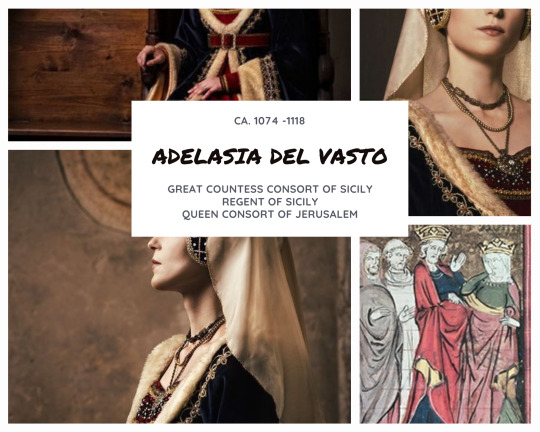
“In the year of the Incarnation of the Savior 1089, Count Roger took a new wife, his former one, Eremberga, daughter of Count William of Mortain, having died. Her name was Adelaide and she was the niece of Boniface, that most renowned marquis of Italy; to be precise, she was the daughter of Boniface’s brother. She was a young woman with a very becoming face.”
Goffredo Malaterra, The Deeds of Count Roger of Calabria and Sicily and of his Brother Duke Robert Guiscard, book 4, ch. 14
Adelasia (or Adelaide) was born around 1074 in Northwestern Italy. Her parents were Manfredi (or Manfredo) Incisa del Vasto, a member of the Aleramici House, and his unnamed wife. From her paternal side, she was the niece of Bonifacio, Marquis of Savona and of Western Liguria, “the most renowned marquis of Italy” (in Goffredo Malaterra, The Deeds of Count Roger ..., book 4, ch. 14). Adelasia had a brother, Enrico, and two unnamed sisters.
Following their father’s tragic death (killed together with his brother Anselmo during a popular uprising in 1079), the siblings were entrusted to the guardianship of their uncle Bonifacio, although quite soon Enrico decided to travel all the way to Southern Italy to help the Norman leaders Robert and Roger Hauteville in their conquest.
The Aleramic scion was gifted with the counties of Butera and Paternò for his services. But the del Vasto family fortunes were destined to grow as Enrico’s sisters married into the newly established Hauteville comital dynasty. His unnamed sisters were betrothed to the Great Count Roger’s bastard sons Goffredo (who would die young without getting the chance to marry) and Giordano, while Adelasia married the Great Count himself.
In 1089 Roger was at his third marriage. His first (and beloved) wife Judith d'Évreux had given him only daughters before dying in 1076. The following year, he married Eremburge de Mortain, who bore him his first legitimate son, Malgerio, and died in 1089. With just a son (who would die young around 1098) as heir, it isn’t surprising Roger remarried. The choice of an Italian wife (his previous ones had been fellow Frenchwomen) was part of the Hautevilles’ strategies to latinize Southern Italy by welcoming Gallo-Italic immigrants with the hoped result to counter the already existing Greek-Arabic majority.
Adelasia would bore Roger two sons: Simone (born in 1093) and Ruggero (born in 1095 – although Malaterra records “in the year of the Incarnation of the Lord 1098, Countess Adelaide became pregnant again by Count Roger” in Goffredo Malaterra, The Deeds of Count Roger ..., book 4, ch. 26) and at least one daughter: either Matilda (born between 1093-1095, future Countess consort of Alife) or Maximilla (birth date unknown, future wife of Count Palatin Ildebrandino VI Aldobrandeschi), or perhaps both of them.
The Great Count died on June 22nd 1101 in Mileto (Calabria). Following her late husband’s wishes, 27-years old Adelasia assumed the regency of the county for her 8-years old son, Simone, who became the new Count of Sicily. She smartly surrounded herself with capable and trusted men, like her brother Enrico, or Christodulos, a Greek Orthodox (possibly a Muslim convert) admiral who had been nominated amiratus (Grand Dignitary) of Sicily already under Ruggero I.
Little Count Simone’s rulership was tragically shortlived as the child died in Mileto, on September 1105, at just 12 years old. He was succeeded by his younger (and, according to the sources, better-suited) brother, Ruggero. As the new Great Count was even younger (10 years old), Adelasia resumed her role of Regent. It is in this period, precisely in 1109, that the Warrant of Countess Adelasia, Europe’s oldest known paper document, was issued.
Although a more generous patron for the Latin clergy, Adelasia maintained a good relationship with the Muslim and Greek communities, granting them freedom of worship and a relevant administrative autonomy (so that in a Greek-Arab charter dated 1109 she is called malikah). She was well aware that, following the change of ownership, her adoptive country was in need of a stabler bureaucratic apparatus, justice administration and a proper capital city. Mileto had been dear to her late husband, but Adelasia had different ideas. Although she preferred Messina for its strategic position, she realised Palermo, having been the capital of the Sicilian Emirate and thus adorned with splendid buildings, was better suited to become the capital of the Hauteville counts. In 1112 she moved the capital from Mileto to Palermo and that same year she stepped back from the Regency, allowing her son Ruggero to start ruling by his own right.
Not used to sitting around and willing to increase her son’s power and fortunes, the dowager Countess accepted to marry in 1113 the childless and older Baodouin I, King of Jerusalem. Prenuptial agreements stated that, in the absence of issue, the Kingdom of Jerusalem would have been inherited by Ruggero and his descendants. This royal marriage proved to be a faux pas as Boudouin was still legally married to his second wife, Arda of Armenia. The King had merely decided to chase her away, sending poor Arda to live in a nunnery, but then simply allowed her to go back to her father’s home in Constantinople without properly annulling the marriage and casting the shadow of bigamy over the new marital union. Moreover, always in need of money to pay for the troops, soon Baodouin spent all of Adelasia’s dowry. Taking advantage of a temporary illness, Papal Legate Arnoul de Chocques convinced the King to annul the marriage so that his wife could be sent back to Sicily. Despite complying, the King was not the least happy as he wished to milk some more the of his Norman wife’s riches, but as the royal union was still childless, Pope Pasquale II could not risk seeing the Hauteville expand their influence over the Holy Land in a possible near future.
In 1117, after four dissatisfying years as Queen Consort of Jerusalem, Adelasia returned back to Palermo. She spent the last year of her life devoting herself to religion. She died in Patti (near Messina) on April 16th 1118 and was buried in the city’s cathedral, where she still lies.
In 1130, her beloved son Ruggero would be crowned the first King of Sicily. According to chronicler William of Tyre, Ruggero never forgot the humiliation his mother had to suffer in Jerusalem so that he and his heirs never truly reconciled with the Kingdom of Jerusalem (“Qua redeunte ad propria, turbatus est supra modum filius; et apud se odium concepit adversus regnum et ejus habitatores, immortale” William of Tyre, Chronicon, XI.29)
Sources
Brugnoli Alessio, La tomba di Adelasia del Vasto
Catlos Brian A., Infidel kings and unholy warriors : faith, power, and violence in the age of crusade and jihad
Curtis Edmund, Roger of Sicily and the Normans in Lower Italy, 1016-1154
Edgington Susan B., Baldwin I of Jerusalem, 1100-1118
Garulfi Carlo Alberto, I documenti inediti dell'epoca normanna in Sicilia
Hayes Dawn Marie, Roger II of Sicily. Family, Faith, and Empire in the Medieval Mediterranean World
Houben Hubert – Loud Graham A. - Milburn Diane, Roger II Of Sicily: A Ruler Between East And West
Malaterra Goffredo, The Deeds of Count Roger of Calabria and Sicily and of his Brother Duke Robert Guiscard
Pontieri Ernesto, ADELAIDE del Vasto, in Dizionario Biografico degli Italiani, vol. 1
Tocco Francesco Paolo, Ruggero I, conte di Sicilia e Calabria, in Dizionario Biografico degli Italiani, vol. 89
Tocco Francesco Paolo, Ruggero II, re di Sicilia, in Dizionario Biografico degli Italiani, vol. 89
William of Tyre, Chronicon
#women#history#historicwomendaily#women in history#historical women#Adelasia del Vasto#House of Hauteville#ruggero i#Ruggero II#baldwin i of jerusalem#simone di sicilia#norman swabian sicily#people of sicily#women of sicily#myedit#historyedit
26 notes
·
View notes
Photo


I didn’t mean to Seduce the Male Lead
This series dances close to the line with suggestive stuff at times but is really just slightly spicy and not a smut series, unfortunately. UxU

Summary
Our girl isekai-ed into a character who only existed for 4 lines in the original novel. And even though she has a minor title, it’s a terrible life. So what does she do? Become a romance novel author of course! You go girl. Get that bag.
Somehow the male lead... has no interest in women?!?? So his dad hires the #1 romance expert: our girlboss FL. Surely nothing could go wrong.
Tropes
- isekai-ed but I’m just an extra!??!?
- plot twist! The OG FL is the villain! :0
- yo some weird shit ain’t adding up from the original novel
FL - Baroness Eleanor Marice

- gaslight gatekeep GIRLBOSS
- tfw you accidentally end up with your oshi
- step on me mummy
ML - Count Rian Floyd Calabria

- yes my dear I’ve loved you since before you even remember
- I love it when a guy do the blushublushu ///UwU///
- even his “cold duke from the North” mum acknowledges that he’s the most handsome man in the empire
- mans literally the hair to 2 duchys (in a kingdom that only has 5)
Rating: Yes PLEASE READ THIS
Yes the romance is nice but also how the original novel plot is dismantled is so interesting.
Status (as of 31 Jan 2023)
Ongoing.
Same Same but Different
- I’m the Tyrant’s Secretary
- I became the Hero’s Mom
full rec list
#I didn't mean to Seduce the Male Lead#manhwa#CherCher reviews manhwa#manhwa recommendation#yo OG FL is such a yandere little shit#speed-reading every week for the eventual downfall
45 notes
·
View notes